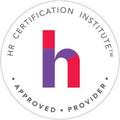How to Help Employees Succeed Quickly in New Roles with Rob Cross
The Next Practices Weekly call series has become a well-attended and wide-ranging discussion for HR leaders each Thursday at 11am ET / 8am PT. On this week's call, Carrie Bevis, i4cp Managing Director of Communities and Partnerships, and Tom Stone, i4cp Senior Research Analyst, facilitated a conversation with special guest Rob Cross, Professor at Babson College and SVP of Research at i4cp. Here are some highlights from the call:
- Cross shared from his research that for much of modern work, 3-5% of people account for 20-35% of the value added collaborations. And yet companies are typically not aware of half of these key employees.
- Cross noted that organizations too often don't take a precise enough approach to employee transitions, both onboarding but also internal moves. And then there is real ROI to take an approach that focuses on networks, trust, etc. Cross' research shows this ROI comes from three sources:
- Improved engagement driving stronger retention, for both new employees and established employees who move internally.
- Improved personal effectiveness reducing time to productivity.
- Network effects reducing the negative impact of attrition, including both follow-on attrition when someone leaves and the network inefficiency that arises when someone leaves.
- Cross walked through his research that comparing two archetypical employees, "A Tale of Two Transitions." One follows a the advice from classic coaching, while the other follows what he calls "fast mover" insights. See the slides and/or session recording for the detailed differences.
- Differences in results for these two approaches really start to appear after the 9-month mark, where the first individual has to work 2-4 times harder to scale their accomplishments, while the second individual more often finds ideas and opportunities flowing to them, and they more likely start to have a sense of belonging, satisfaction, and motivation.
- The "fast mover" applied three overarching principles and 12 critical practices over the first 9-12 months. When to optimally leverage each practice varies depending on the transition type, such as new hire, new leader, promoted leader, and lateral role shift.
- Initiate: pursue a broad network; build network address knowledge gaps; connect with influencers; tap trusted advisors.
- Engage: align expertise to context; cultivate network via accomplishment; pursue mutual wins; prioritize trust.
- Refine: avoid network traps; streamline collaboration; sculpt role through intentional network; build enterprise connectivity.
Links to resources shared on the call:
- Tool: Calculate the Benefits of Accelerating Role Transitions
- Amazon links to Rob Cross' latest two books:








